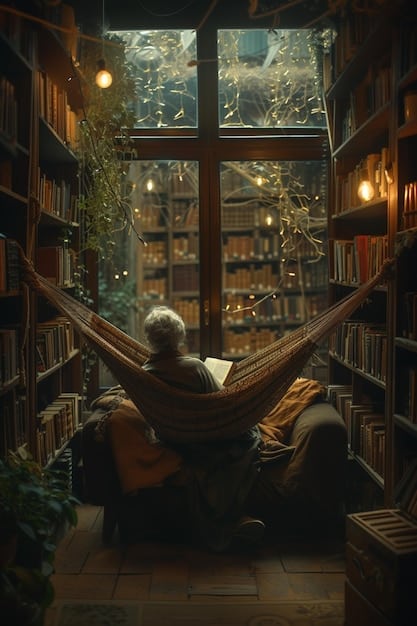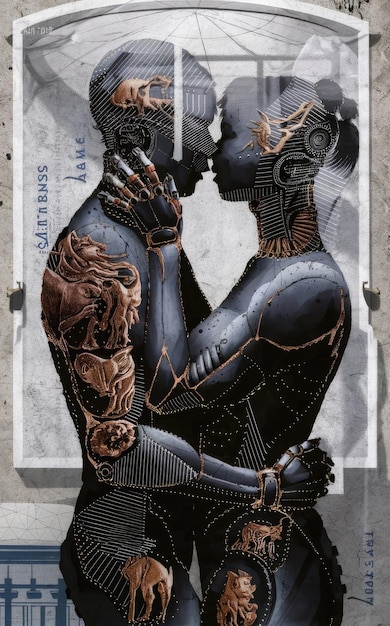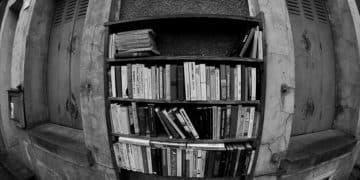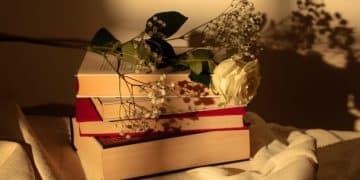5 Reading Lists to Spark Your Next Novel Idea

5 Reading Lists That Will Inspire Your Next Novel Idea provides curated lists spanning genres and themes, offering diverse perspectives and storytelling techniques to ignite creativity and guide aspiring novelists.
Are you a writer staring at a blank page, searching for that initial spark? These 5 Reading Lists That Will Inspire Your Next Novel Idea are designed to jumpstart your imagination and guide you toward your next compelling story.
Unlocking Creativity Through Curated Reading Lists
Reading is a cornerstone of any writer’s craft. But with so many books available, where do you even begin? Curated reading lists can be a treasure trove of inspiration, offering diverse perspectives and storytelling techniques that can unlock your creative potential. They provide a focused approach to expanding your literary horizons, guiding you towards new genres, themes, and narrative styles that you might not have discovered otherwise.
Why Reading Lists Are Essential for Novelists
Reading lists act as a structured exploration of the literary world, giving you the opportunity to examine diverse writing styles and narrative structures. It helps to get out of your confort zone and expand your writing style, allowing you to be more creative in your own way.
Benefits of Following Reading Lists
From understanding character development to mastering pacing and plot, reading lists are invaluable for writers to hone their skills, broaden their understanding of the craft, and ignite inspiration for their own stories.
- Exposure to different genres and writing styles
- Deeper understanding of storytelling techniques
- Igniting new ideas and perspectives
- Improving your own writing skills

By delving into these curated collections, you’re not just reading; you’re actively learning and absorbing the nuances of storytelling that can enrich your own writing. Following these lists help you evolve your craft and create something unique and captivatibg.
Reading List 1: The Classics Reimagined
There’s a reason why certain books endure through the ages. This reading list dives into classic literature but with a twist: it focuses on modern adaptations, retellings, and reinterpretations. Immerse yourself in timeless tales seen through a contemporary lens.
Why Revisit the Classics?
Revisiting the classics allow you to see how stories are reshaped and reinterpreted by other amazing writers. Plus, classics are known as such for a reason, reading them allow you to add more literary tools to your arsenal.
Examples of Classics Reimagined
From Shakespearean tragedies to Jane Austen’s romances, there is something to read and learn from classics.
- “Pride and Prejudice and Zombies” by Seth Grahame-Smith
- “Wide Sargasso Sea” by Jean Rhys
- “The Penelopiad” by Margaret Atwood
This reading list isn’t just about nostalgia; it’s about understanding how timeless themes and archetypes can be adapted to resonate with modern audiences, inspiring you to breathe new life into your own original concepts.
Reading List 2: Genre-Bending Adventures
Break free from traditional genre boundaries. This list explores novels that defy easy categorization, blending elements from science fiction, fantasy, horror, and romance to create something truly unique.
Why Explore Genre-Bending Novels?
Exploring genre-bending novels can help you discover the limitless possibilities that fiction have to offer. It will help diversify your thinking and allow you do break the limits when it comes to your own writting.
Pushing Creative Boundaries
Explore how authors are cleverly mixing and matching genres to subvert expectations and build something amazing, by examining unique approaches to world-building, character development, and plot construction.

Examine how these authors create stories that resonate across different reading preferences, opening up opportunities for crossover appeal and a wider audience reach. It’s about pushing the creative boundaries and finding innovative ways to tell your story.
Reading List 3: Voices From Around the World
Expand your cultural horizons with novels from diverse international authors. Discover unique perspectives, explore different cultural norms, and gain a deeper understanding of the human experience.
The Importance of Diverse Voices
Reading different genres helps you to understand and be more empathetic of different cultures, it’s a must for every writer that wants to connect with different kinds of audience in their writing.
Authors to Discover
Read new stories that come from cultures around the world and discover new ways of seeing the world.
- “One Hundred Years of Solitude” by Gabriel García Márquez
- “The God of Small Things” by Arundhati Roy
- “Homegoing” by Yaa Gyasi
This reading list will cultivate empathy for different cultures, gain insights into universal human emotions, and find inspiration for characters and storylines that reflect the richness and complexity of our world.
Reading List 4: Mastering the Art of Suspense
Captivate your readers with heart-pounding thrillers and suspenseful mysteries. This list explores novels that excel at building tension, creating unexpected twists, and keeping readers on the edge of their seats.
Techniques for Creating Suspense
Studying the techniques for creating suspense is a really powerful tool that every writer needs to master in order to grab the attention of the reader and leave them hooked.
Examples of Suspenseful Novels
By studying suspenseful novels you will understand how the elements of fear, danger and intrigue are used to make the reader hooked into them.
- “Gone Girl” by Gillian Flynn
- “The Girl with the Dragon Tattoo” by Stieg Larsson
- “The Silent Patient” by Alex Michaelides
This reading list is not only about adrenaline-pumping narratives; it’s about understanding how manipulation, storytelling, and narrative structure can be used to build anticipation and captivate readers until the very last page.
Reading List 5: The Power of Historical Fiction
Transport your readers to different eras with captivating works of historical fiction. This list explores novels that bring the past to life, blending accurate historical details with compelling storytelling.
Why Write Historical Fiction?
By taking the reader to a different era you are transporting them to a whole new wolrd with endless possibilities from every point of view. It’s a great starting point to create a whole new magic story.
Exploring Different Eras
Understanding the power of research and historical accuracy it’s what allows new writers to bring new stories to life.
- “The Nightingale” by Kristin Hannah
- “The Book Thief” by Markus Zusak
- “Pachinko” by Min Jin Lee
This reading list is more than just historical accounts, it’s studying how historical backdrops are made, and exploring human stories that transcend time allowing you to craft immersive narratives.
| Key Concept | Brief Description |
|---|---|
| 💡 Classics Reimagined | Adapt classic themes for modern audiences. |
| ✨ Genre-Bending | Combine elements from multiple genres. |
| 🌍 Diverse Voices | Explore narratives from international authors. |
| 🎭 Suspense Mastery | Read and Learn suspenseful and mysteries. |
General FAQs
▼
Reading lists expose writers to various styles, genres, and techniques. They offer structured learning and fuel creativity, which helps in developing unique ideas and improving writing skills.
▼
You can discover reading lists through online literary magazines, blogs, book review sites, and social media platforms. Many libraries and writing communities also curate lists tailored to specific interests.
▼
It’s perfectly fine not to enjoy every book. Focus on understanding why the book was included and what techniques it employs. You can still learn from books you don’t personally like.
▼
Yes, reading lists can break writer’s block by exposing you to fresh ideas, different perspectives, and new ways of approaching storytelling. They can reignite your creativity and provide a starting point.
▼
Absolutely not! Reading lists are meant to be a starting point, not a boundary. Always explore beyond the list based on your interests. The goal is to broaden your horizons and enhance your writing.
Conclusion
By exploring these five carefully curated reading lists, aspiring novelists can unlock their creative potential and embark on thrilling literary journeys. Immersing yourself in diverse genres, perspectives, and storytelling techniques will not only broaden your understanding of the craft but also spark the inspiration needed to craft your own compelling narratives. Happy reading, and happy writing!





